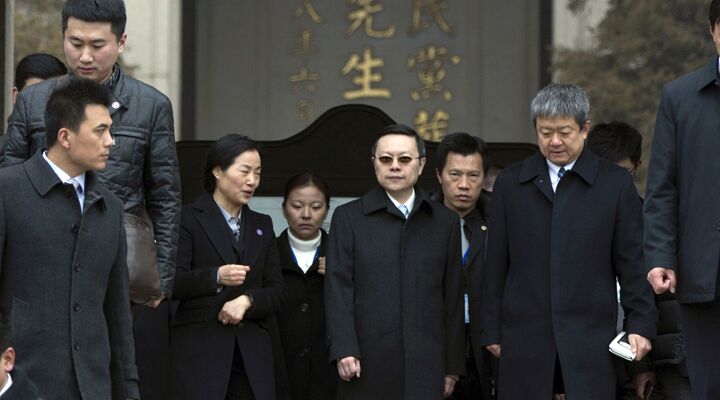
Taiwan Edging Back Into the Chinese Fold
China and Taiwan held a landmark meeting on February 11 to establish representative offices (equivalent to embassies or consulates) that will enable closer cooperation between the two sides. The talk was the first of its kind since Taiwan’s establishment, and is the latest of many significant measures showing that reconciliation between Taiwan and China is near.
Tension has saturated the relationship between Beijing and Taipei since Taiwan’s establishment in 1949, when Chinese Communists fought Kuomintang soldiers off the mainland and onto the island of Taiwan. The civil war effectively divided China into two nations: China and Taiwan. But the Communists of mainland China have consistently claimed rule over Taiwan ever since then. Hence the tense relations. But when China-friendly Ma Ying-Jeou became Taiwan’s president in 2008, he began making conciliatory overtures toward Beijing, and the cross-Strait frost began to thaw.
“The two sides of the Taiwan Strait should not quarrel,” Ma said in 2011. “We should instead focus on encouraging and helping each other grow in terms of the core values of freedom, democracy, human rights and rule of law.”
Ma explained that since people on both sides of the Taiwan Strait share common ancestry, they should build mutual trust and dispel their disagreements. Their common culture, Ma has often said, should give Taiwan and China the wisdom to find satisfactory solutions to their quarrels.
The warming relationship between China and Taiwan is bad news for the U.S. and any other nation concerned about China’s ascendancy. For many years, Taiwan has been the best location from which to monitor China’s rise because of both the island’s advanced information technology and its proximity to China. Shared language, ethnicity and culture also allow Taiwanese spies to blend into Chinese society, giving them a great advantage in their reconnaissance missions. But now Taiwan appears to be questioning its role of being the eyes and ears for other nations. Reports say that Ma has already halted the activities of some Taiwanese spy agents operating in China, and is now planning to stop sharing intelligence with the U.S. and its allies.
The Trumpet has long predicted the China-Taiwan reconciliation which is now gaining great momentum. “How could anyone fail to see that Taiwan is destined to become a part of mainland China?” editor in chief Gerald Flurry wrote back in 1998.
The establishment of the representative offices may become a key step toward fulfillment of that bold geopolitical prediction. We can expect China’s gentle approach with Taiwan to continue until Taipei is offered something similar to the status Hong Kong currently holds. If Taipei were to refuse China’s increasingly bold advances, then Beijing would probably respond with threats of force—but under Ma’s Beijing-friendly rule, such refusals are becoming less and less likely.
When the Chinese-Taiwanese reconciliation is complete, it will boost China’s ability to dominate in the Pacific, and to persuade other Asian states to rally behind Beijing. To understand the significance of China’s rise, read “Czars and Emperors.”
